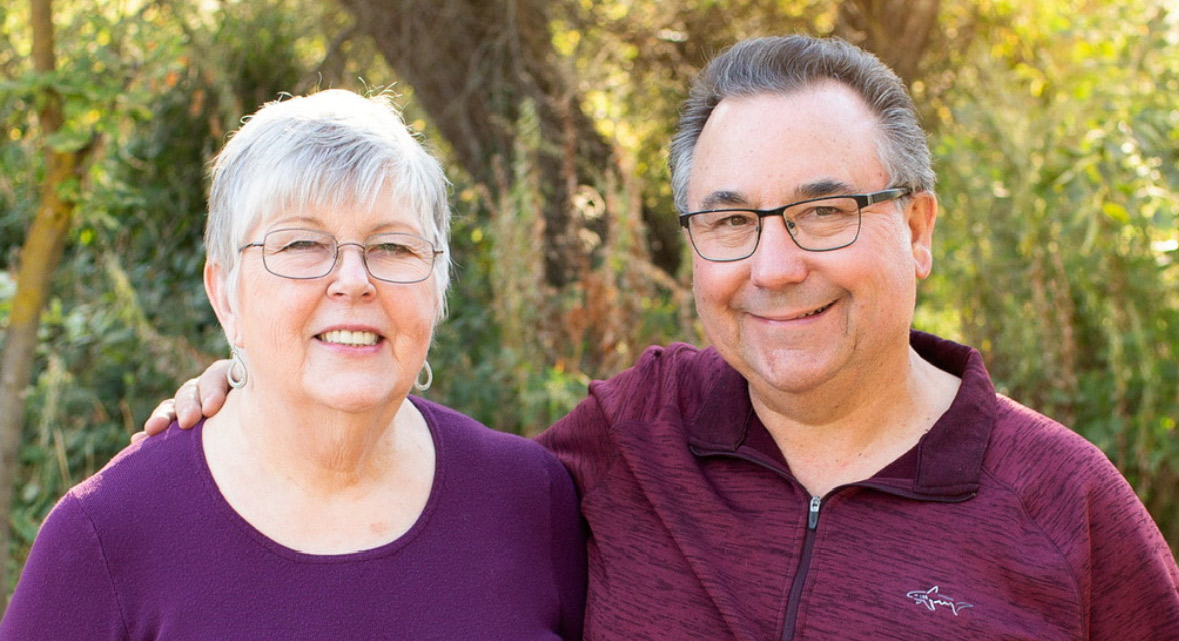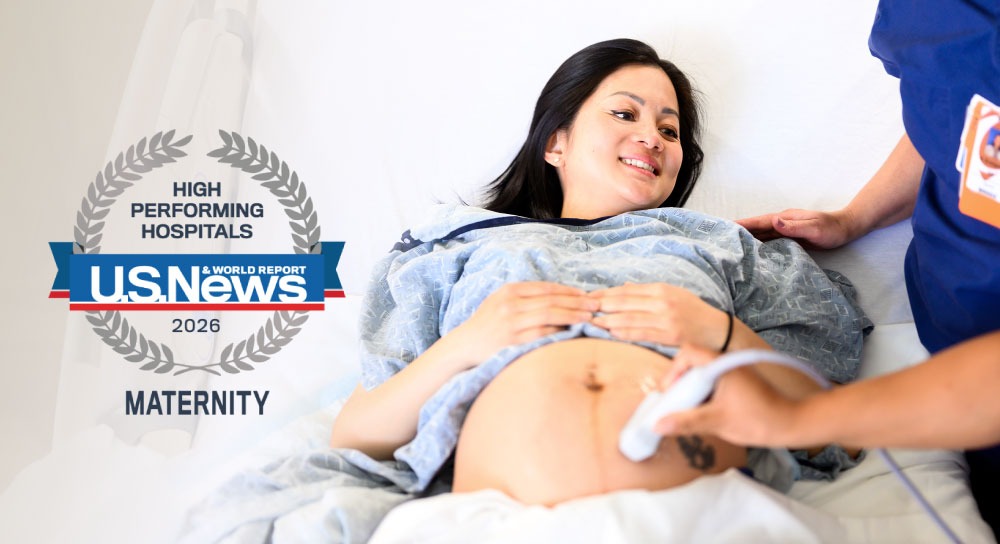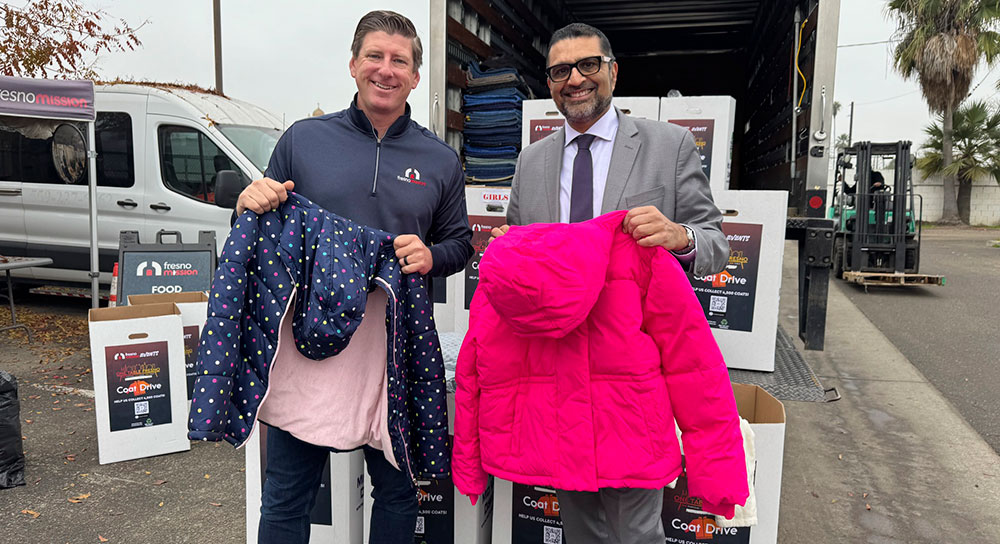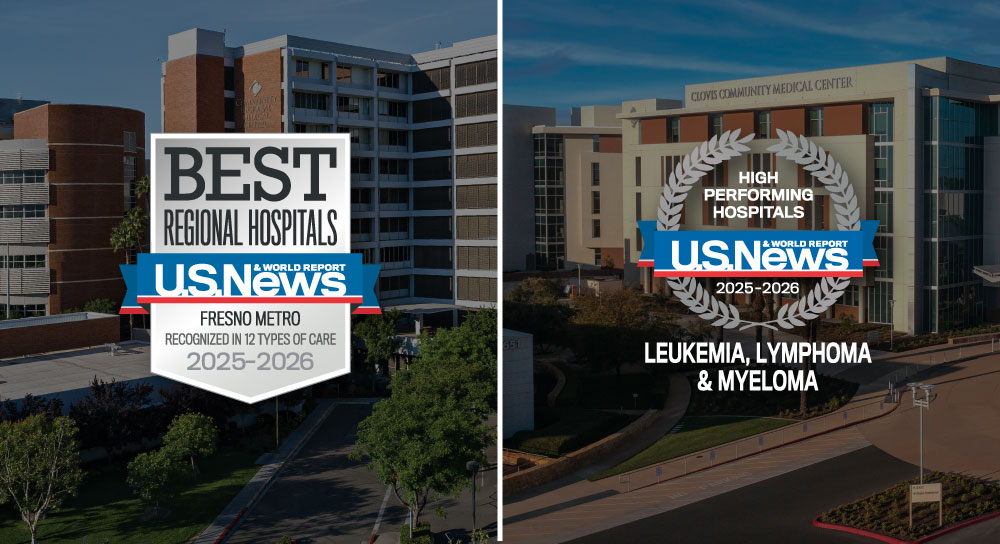Donald Lisles was in the right place, at the right time when he experienced a hemorrhagic stroke that left him in a coma.
Lisles had just picked up his wife at Clovis Community Medical Center’s emergency department when something felt wrong. While still in the parking lot, he pulled over to a curb where a nurse found him and his wife, recognized the signs of a stroke and got him help. After further tests, doctors knew Lisles needed a higher level of care and he was transferred to Community Regional Medical Center in downtown Fresno for emergency surgery.
“There was a blood vessel in the deep part of his brain that ruptured,” said Dr. Arash Afshinnik, director of the neuroscience intensive care unit at Community Regional.
An extraventricular drain was placed in Lisles’ skull to release the buildup of fluid on his brain. The drain removed the extra fluid, and Lisles looked like he was on the road to recovery.
What came next was a domino effect of complications, including:
- blood clots in his legs
- an embolism (blockage in a blood vessel) in his lungs
- stomach bleeding
- massive blood loss
“It seemed like whack-a-mole,” said Lisles’ daughter, Faith Driscoll. “Every time it seemed like things were getting better, a couple weeks would go by and he’s recuperating and maybe getting out of the ICU, then there’d be another issue.”
Communication and family support key in recovery
Dr. Afshinnik had never seen so many issues after a stroke. “Every resource we had within Community Neurosciences Institute cared for him,” he said.
The different teams worked together to save Lisles’ life, answering every challenge with the correct solution.
“The communication was fabulous,” said Driscoll. “The nurses were always ready to answer questions and keep us in the loop and let us know what the next stage is and what we can expect.”
But it wasn’t just communication with our care team that helped Lisles recover. Dr. Afshinnik said having Lisles’ family visit every day also played an important role.
“We know as providers, when we are communicating with patients with brain injuries, our voices aren’t as recognized as those of loved ones who have a deeper place in their head and heart,” he said. “And so for these individuals, having their family member here every day supporting them is really invaluable.”
Community Regional’s stroke center unique to the region
Lisles was able to recover with his family at this side thanks to the higher level of neurosciences care provided by Community.
Community Regional is the only Comprehensive Stroke Center in Fresno, Madera, Merced, Kings and Tulare counties, and the only hospital in Fresno to be recognized by The Joint Commission as an Advanced Comprehensive Stroke Center.
A Comprehensive Stroke Center is the highest level of certification a hospital can receive. To receive certification, it must treat complex stroke cases — including bleeding (or hemorrhagic) strokes and ischemic strokes — as well as offer 24/7 access to a team of on-site neurosurgical experts.
“It’s so great that we have the level of care available to us right here in our home so that we could be here — present,” said Driscoll.
Lisles agrees. After his recovery, by chance he ran into Dr. Afshinnik at Costco and was able to thank him personally for the care he received.
Watch video of this story on MedWatch Today, Community's weekly, half-hour TV show produced in partnership with KSEE24 and CBS47.






